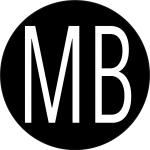We Are Go for Launch
I have been busily finishing work on a paper for the 8th Annual Latin American Congress on University Teaching in Rosario, Argentina. This is the mission of the Congress:
Founded on the belief that, in their teaching practices, teachers build professional knowledge based on both disciplinary and pedagogical theory and experiential knowledge, “VIII Iberoamerican Congress of University Teaching (VIII CIDU)” based at the National University of Rosario (Argentina), is organized around the construction of this knowledge.
I have the good fortune of being in Brazil during this conference and my collaborator in Brazil, Dr. Geovana Mendonça Lunardi Mendes of the State University of Stanta Catarina, suggested we submit and see what happened. Well, it happened! I will be presenting as a part of a panel with my focus being the shifting of classroom teacher workflow as a result of tablet teaching practices. We will look at how we, at the College of Wooster, are revamping our teacher education coursework to model these practices and prepare tomorrow’s teachers for these new realities. This paper stems from my initial collaborations with my colleagues Dr. Megan Wereley and Alison Schmidt, two professors excited about and deeply committed to the exploration of new and innovative pedagogies.
I would like to share this work over the next few posts, but I will start with an abstract to give you a feel for the ideas to come.
Abstract: The adoption of a progressive ethic for teaching and learning supports a teacher candidate’s efforts to think differently and use the technology tools to explore and embody the fluid nature of learning and teaching. It is through this exploration that students, and their professors, come to realize that they are not, and should not, be prepared to teach in the world in which they were educated. A progressive ethic will not only allow for this realization to occur, but it will prepare candidates to be intrepid and creative. Students and faculty need to be given 21st Century skills and tools necessary to become leaders in the midst of a paradigm shift. With the old theories shifting under their feet, educators at all levels need to hone the ability to lead by influence rather than authority. The rate at which technology changes should mirror the rate at which educational practices also change and adapt. This rapid movement begs for leaders who freely share ideas and question mandates that may be outdated or stagnant. Turning our gaze toward the 2014 Horizon Report, we are reminded that mobile computing is at the leading edge of technological change – change that will impact the future of teacher education. The infusion of tablets, and other mobile devices into the classroom will have a lasting impact on pedagogical practice, teacher workflow, and student interaction with curriculum and others. We must harness these emerging technologies as a means to make past practices more efficient and effective, but more importantly, to create new and innovative practices for teaching and teacher education.
